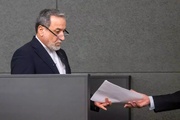On the verge of the 171st Ordinary OPEC Meeting to convene on November 30 in Vienna of Austria and at a time when the world's major producers and exporters of crude oil are preparing to adopt one of the most historic decisions on freezing oil prices, Saudis seem to have reneged on earlier promises.
During the earlier informal meeting of OPEC ministers in Algeria in late September, members of the Organization of Petroleum Exporting Countries (OPEC) reached a consensus on putting a cap on production levels and the session urged participants to prepare for freezing or even reducing OPEC's aggregate oil output to 32.5 million barrels per day by holding expert meetings and forming a common working group.
Over the past few weeks, several meetings at expert level were held among member states in different parts of the world and even non-OPEC states like Russia, Kazakhstan, Azerbaijan and Oman voiced readiness to stabilize or decrease their production levels.
Nevertheless, Saudi Arabia has questioned all agreements and negotiations on freezing oil prices by publishing a political and planned letter ahead of the forthcoming OPEC meeting.
Accordingly Saudi Arabia, in an official letter to OPEC, has announced that it will not take part at the lower-tier talks on Nov. 28 in Vienna ahead of the OPEC ministerial meeting on Nov. 30 since "OPEC ministers first need to agree on cutting output and inform non-member countries about their agreement."
In time with the tactical retreat on Saudis from attending the joint meeting of OPEC and non-OPEC members on Monday, Russia has also announced that it will not participate in the session in order to make any comprehensive deal literally impossible.
Apparently, under the pretext of lack of agreement among members, Saudi Arabia refuses to attend the Monday meeting, while in fact, Saudis, as OPEC's largest oil producers plan to apply pressure on certain countries in order to dictate their policies to the member states.
On the other hand, it seems that even in case of a consensus among all member countries, including Iran and Iraq on a Saudi proposal to reduce production quotas, still, Saudi Arabia, with political backing of some of its princes, seems to be applying new tactics to disturb convergence of OPEC in achieving a comprehensive agreement on oil production.
In the past 12 years, Saudi Arabia and Iraq have enjoyed the lion's share in crude production among all OPEC members to the extent that both countries, Saudi Arabia in particular, have taken over shares of other states by exploiting turbulent conditions like Iran's oil sanctions, Libya's internal conflicts, technical issues in Venezuela's oil industry not to mention ongoing disputes in Nigeria.
According to secondary sources, Saudi Arabia's production share in OPEC has risen from 29.1% in 2004 to 31.5% in 2016 and the figure for Iraq increased from 6.5 to 13.2 per cent in the same period.
Moreover, share of the UAE rose from 7.7 to 8.8 and for Kuwait from 7.6 to 7.8 while the figure for Iran dropped from 13% in 2004 to 8.6% in the present year even though the country's production soared following implementation of the Joint Comprehensive Plan of Action (JCPOA).
The aggregate total of oil output in Saudi Arabia has reached 10.525 million barrels per day (bpd) indicating a rise of over one million bpd as compared with the year 2014. Iraq's crude oil production also rose from 3.11 million to over 4.776 million bpd in the same timespan.
Iran's output level, however, stands at about 3.92 million bpd still lower than pre-sanction levels which were over four million bpd.
In other words, Saudi Arabia has, in one sense, seized shares of other OPEC manufacturers during the past decade and, once again though this time with a politically-motivated and non-economic plan, Saudi princes intend to wage a full-blown psychological war against Iran and a number of other OPEC members in order to prevent achieving a comprehensive agreement on reduction of oil output so that they could maintain the highest production capacity while ignoring interests of other members.
No doubt in the remaining hours before the OPEC meeting, Saudi Arabia will resort to some Western media to launch a new psychological war against Iran's oil industry in order to virtually direct attention of market activists from its own uncapped and high output levels to countries like Iran, Iraq and other OPEC countries.
In the meantime, it is worth recalling that due to the sharp decline in global oil prices from $100 per barrel to lower than $50, any decline in oil market will undoubtedly bring about the greatest loss to Saudis, with a production of over 10.6 million bpd, than it would do to Iran who produces less than four million bpd.
In the first ten months of the post-JCPOA era, Saudis have remained as the absolute losers in their rivalry against Iran in the oil market.
The Arab country has opted for several tactics to cause disturbance in return of Iranian crude oil to the global market including official reduction of oil sale prices in Asia and Europe, imposingsanctions against Iranian oil tankers as well as forcing the Egyptian government to prevent Iran from using the Sumed pipeline.
Despite all measures taken by Saudis, Iran has reached a record high in oil sales bydeploying 2.442 million barrels of oil per day to global markets, marking anunprecedented figure in the past two decades.
Moreover, Iran has recently managed to find a place in emerging markets like Poland, Hungary as well as some states in the Eastern Bloc of Europe.
Also in Asia, Iran has taken over the place of Saudi Arabia turning into the largest supplier of crude oil to India and statistics reveal that in October, Iran shipped 789 thousand barrels of crude to the Asian state remaining ahead of Saudis who exported 697 thousand barrels in the same time preiod.
The question remains whether Saudi Arabia will manage to attain its political objectives in the oil market by waging a new oil war on the verge of the OPEC meeting in Austria in order to postpone the plan to freeze OPEC's oil output.
HA/3834930


























Your Comment